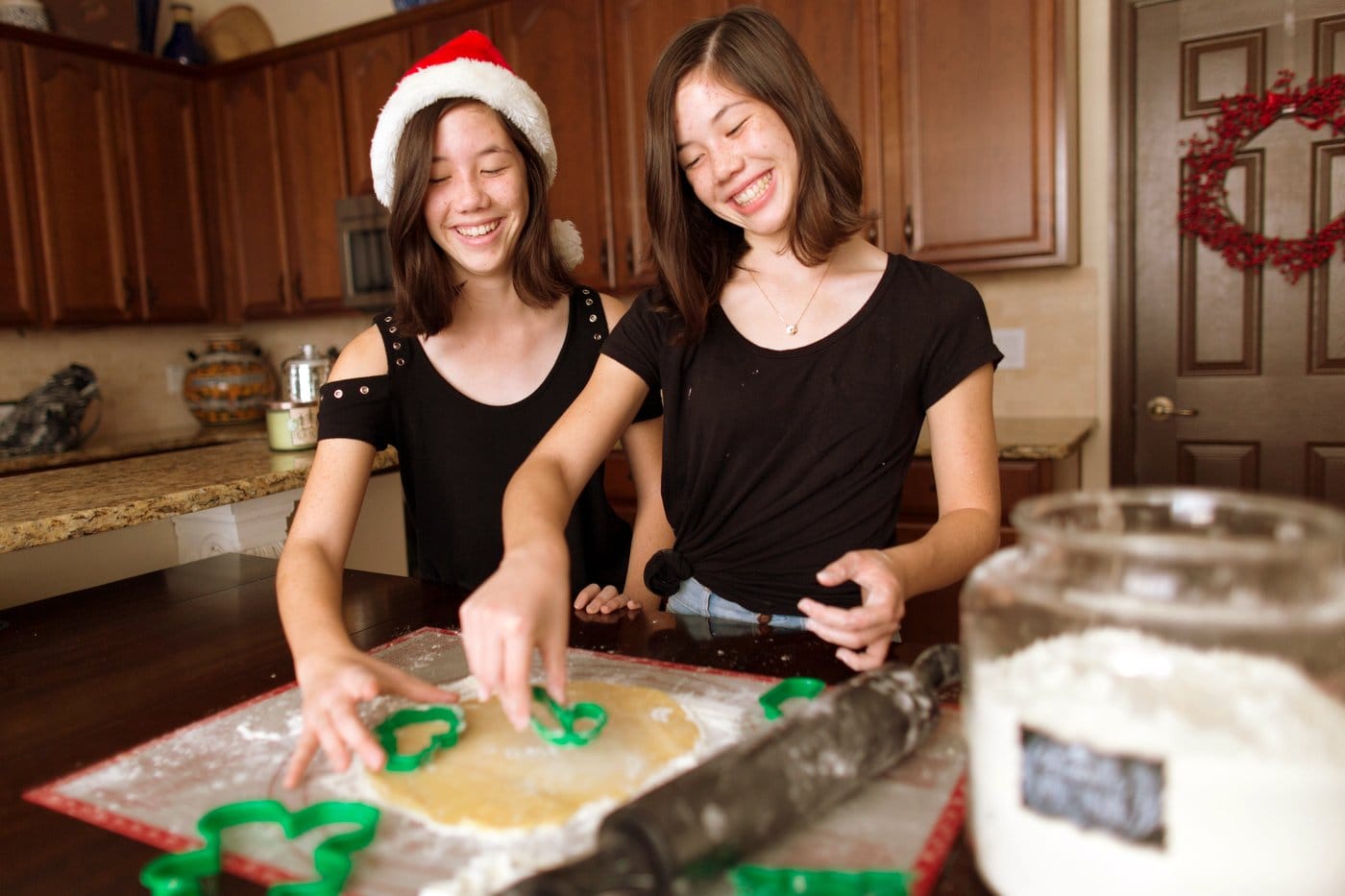Both Thanksgiving and winter breaks mean one thing for most students: reintegrating with parents and family under one roof.
For some, family time is as joyous as one of those old holiday movies, with festive gatherings and big plates of delicious food. For others, though, coming home can be something very different — and often much less exciting.
How parents & kids can survive a holiday visit home from college
By Kayla Hedman, Champlain College News
When it comes to parenting college students, any time when they come home can be an emotional one, particularly when expectations collide.
You imagined many conversations with your college student about how classes are going and about new friends — but you also expected to still fulfill family traditions from their childhood, and spend plenty of one-on-one time with your almost-grown.
They, on the other hand, probably imagined sleeping away the stress of midterms, hanging with high school friends until 2 am, having lots of homecooked meals to enjoy — and, oh yeah, there’s this giant sack of dirty laundry.

Here are some tips to make that Thanksgiving or Winter/Christmas break a little less chaotic:
1. Plan travel arrangements well ahead of time
Book plane tickets early and encourage your child to line up his ride to the airport, and allow plenty of time to get through security. Especially when dealing with wintry weather, add in even more time, and be sure they carry a few snacks with them in case their flight gets delayed. (TSA allows empty water bottles through security, so encourage your kiddo to bring one, and look for one of the many bottle-filling stations in the terminal.)
If you’re planning to pick up your child on campus instead, allow a little extra time and have patience. More often than not, your child will still be packing when you arrive, and will have a mountain of dirty laundry that they expect you to do “for free” at home.
Plan extra time to stop in the bookstore to pick up some “proud parent” souvenirs, and encourage your child to give you their own guided tour of their new home and campus. Allow plenty of time for them to say hi and bye to friends — and, hopefully, introduce you to more than a few of them.
Don’t forget to pack water and snacks for the road, but also throw in a blanket and pillow just in case. If you’re lucky, you may end up using them when they decide they miss driving.
2. Make an agenda
Check in with your child before they return home, and find out what plans he may have already made. Let him know about any family commitments on the calendar, but understand that they need time to see his friends too — they have a lot of catching up to do.
Also, schedule any necessary doctor, dentist, or hairdressing appointments ahead of time.

3. Reinforce the importance of responsible living
Make sure your child is on track with eating, sleeping and study habits. Remind them of the counseling services available for free on their campus, and stay up-to-date on their well-being.
If your child was an active athlete in high school, see if they’ve gotten their fix of exercise on campus and emphasize that they try and do so. This goes for involvement in other clubs and organizations, too.
Also, this break is a time to bring up a conversation about responsible extracurricular activities — a good time for this is after they ask you for that glass of wine with dinner or want to share a beer for the first time.
4. Reassert your role as a mentor
As a friend, fan, and in most cases, financier, you remain equally well-positioned to hold significant influence over your child. Remote as you may be when your child is away at school, the lessons you impart still stand as the primary voice of reason in their lives.
If you stand boldly during their first long break from college, you will help them return with the loving lessons they need to succeed at school.
5. Expect major changes on your end, too
Your child will have grown a great deal since they left you, mentally and/or physically. It’s a good idea to check if your child has become a vegetarian before you carve the roasted turkey.
Similarly, address the family beforehand if your child has made any drastic changes to their appearance. Also, if you’ve made any major changes, especially to their old room, let them know before their arrival to avoid confrontations.

6. Stock the kitchen
Ask your child what meals he expects when he is home. Make sure to get all the ingredients for them as well as his favorite snacks. Consider there may be unexpected guests at the house from time to time, too.
7. Reexamine old house rules and curfews
Your child has had complete freedom at college to go where he wanted, when he wanted, and no one waited up. Enforcing a curfew at home may not only be impossible, it also sends an unsettling message that you have so little faith in his ability to take care of himself.
Think about alternative ways you could word things to avoid your child’s retaliation. For example, if you are worried about an exhausted teen driving in the middle of the night, ask that the car be home by a specific time. If you just want to know that he’s safe, discuss what time he plans to be home, and ask that he call or text you if there’s a change in plans.
8. Let them sleep
Expect your child to do a lot of sleeping. Between the intense studying, dorm social life and his own sleeping habits, his sleeping schedule will have changed dramatically. He’s not lazy when he sleeps till noon the first few days of break — he’s exhausted.
9. Bring them shopping
Your child probably brought his entire collection of dirty laundry home — and he will love it if you offer to help, especially if he has run out of detergent or quarters for the dorm dryer. But this is a good time to help him restock other essentials too, including toiletries, snacks and cleaning supplies.

10. Lovingly support their return to school
While some teens can’t wait to get back to college after a Thanksgiving or Christmas break, others still haven’t quite acclimated to campus life. They may have battled homesickness or wept over faraway high school sweethearts.
After a few days nestled with family and old friends, eating their favorite foods and having someone else do their laundry, they may not want to go back to college. If they drop out now, the entire semester was a waste of time, tuition and credits.
Offer love and reassurance, and emphasize how only a few weeks remain until the semester is over, and they’ll be home again. Often, the time between Thanksgiving and winter break is a turning point in terms of settling into the college routine and feeling accomplished after finals.








